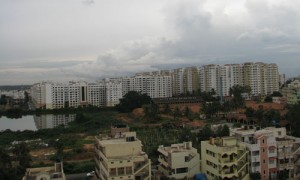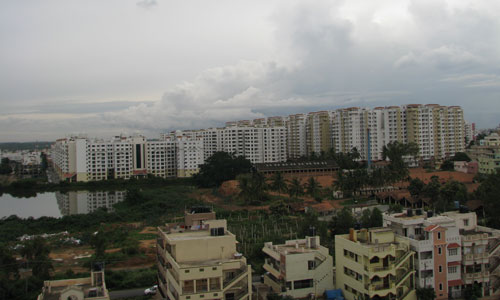 Track2Realty Exclusive Yearly Analysis: Experts say there are liquidity concerns both on the supply and demand side. Many developers are faced with a liquidity crunch and cash flow issues due to slowdown in home sales, and this is turn is impacting their ability to finance construction of new properties.
Track2Realty Exclusive Yearly Analysis: Experts say there are liquidity concerns both on the supply and demand side. Many developers are faced with a liquidity crunch and cash flow issues due to slowdown in home sales, and this is turn is impacting their ability to finance construction of new properties.
“There is a liquidity concern on both the supply and demand side due to high interest rates and high prices. The impact of the slowing economy is reflecting on the ground now, in demand slowing down and execution of projects being hit,” says Anshuman Magazine, Managing Director, CBRE, South Asia.
“Home sales are down nearly 40 per cent because of the very high cost of homes. This is becoming a vicious cycle,” says Anckur Srivasttava, Head of GenReal Property Advisers.
According to a recent report by real estate consulting firm PropEquity, the number of unsold properties in India’s top seven cities at the end of December this year is expected to be around 32,000 units and valued at over Rs 21,000 crore.
According to data available on stock exchanges, 25 listed real estate companies have a total of around Rs. 40,000-crore worth inventories on their balance sheets. Also, the Mumbai Metropolitan Region and National Capital Region have 250,000 unsold apartments.
PropEquity says housing sales dip by 42 per cent in NCR, 34 per cent in Mumbai in January-August 2012. It fell by 42 per cent in the national capital region during the first eight months of 2012 calendar year. Mumbai Metropolitan Region and Bangalore markets, too, witnessed drop in absorption of housing units at 34 per cent and three per cent, respectively, during January-August period of 2012 compared with the year-ago period.
Mumbai absorbed 45,049 units during January-August 2012 against 68,740 housing units in the corresponding period of the last year. In Bangalore, sales dropped to 24,734 units from 25,460 units during the period under review.
Experts attribute the fall in absorption in these markets to lack of demand from investors in the uncertain economic situation. The moot point here still stands as to whether this is the time to buy for the end users. After all, the new launches also took place at a slackened pace during the initial eight months of 2012 at just 55,001 units.
“Urban economics has gone haywire as inventories are piling up because people are unable to afford property at current prices. Developers are facing serious cash flow problems and we can see it. Inventories are only going to increase in the next six months, says Pankaj Kapoor, Managing Director, Liases Foras.
…..to be continued





